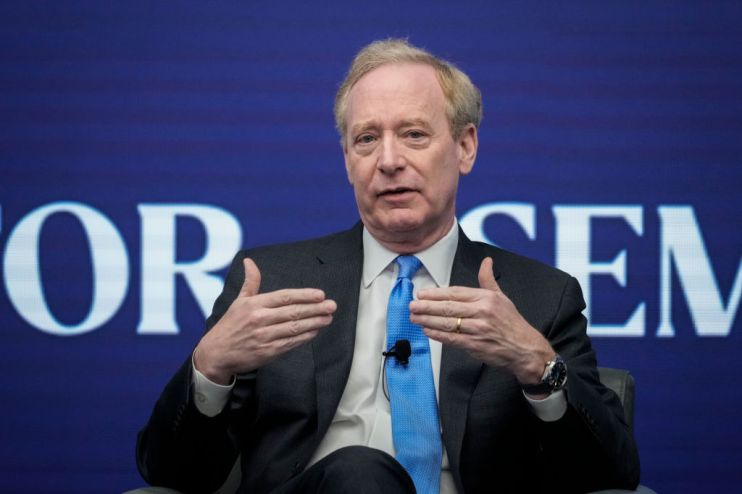Microsoft rallies behind licensing regime for AI firms to ensure safety

The president of Microsoft has called for a licensing regime for artificial intelligence firms, arguing that such a system would be needed to ensure AI models are used safely.
“There is some category of models that is so powerful, so impactful, there will need to be certain regulations and laws – new regulations and laws – that will apply to them,” Brad Smith said, speaking at a TechUK conference.
Smith said that “I think it probably means that before a model can be deployed it will have to pass some kind of safety review”.
“And just like an aeroplane, a bus, and an automobile, a powerful model will probably need to pass such a review and in our view it probably should get a licence,” he said.
“Of course that means there will need to be a licensor in a position to make that decision,” he added.
His remarks on licencing AI came after Labour’s shadow digital secretary Lucy Powell also called for a similar regulatory model to be adopted.
She told attendees: “There are times in history where we’ve had to look at new tech and think about how if it gets into the wrong hands it can’t cause problems and disruption.
“Other examples of that have been development of nuclear power and weaponry, drug and medicine development.
“We’ve done that in the past and [used] those kinds of models where you have to have a licence for what you’ve developed.
“But I do understand the concerns people have about blocking out smaller players from the system and creating tech monopolies which is something I would want to guard against,” she said.
Smith also met with British finance minister Jeremy Hunt yesterday as he said he would look to work with regulators to seek UK approval for its $69 billion purchase of ‘Call of Duty’ maker Activision Blizzard.
Smith blasted the decision at the time as “bad for Britain” and said the corporation’s confidence in the UK was severely shaken – but now vowed: “Hope springs eternal.”
“I’m in search of solutions. If regulators have concerns we want to address them. If there are problems, we want to solve them. If the UK wants to impose regulatory requirements that go beyond the EU, we want to find ways to fulfil them,” Smith told the conference.
